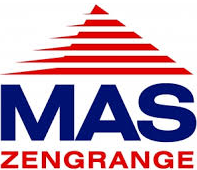New Research from EMA Finds that the IT Security Skills Gap is Getting Bigger
BOULDER, Colo., Aug. 26, 2020 /PRNewswire-PRWeb/ -- Enterprise Management Associates (EMA(TM)), a leading IT and data management research and consulting firm, released a new research report titled "How Automation and Orchestration can Help Bridge the IT Security Skills Gap" based on criteria defined by Paula Musich, research director of security and risk management at EMA.
The shortage of skilled information security practitioners continues to grow around the globe. Based on 200 IT executives and contributors who primarily serve in information or IT security roles, this new research found that in the United States, for organizations with at least 500 employees, the average number of open positions enterprises are trying to fill is 1,324. For the largest percentage of respondents in this survey, that number increased between 1% and 25% over the last year, although that increase is higher for large enterprises.
As this skills gap continues to widen, malicious attackers are adopting automation and machine learning to identify and exploit vulnerabilities to execute multi-stage attacks at a breakneck pace. Further exacerbating the dearth of defensive cybersecurity skills is an increase in security incidents resulting from the global pandemic, as attackers seek to exploit the suddenly large number of remote workers.
Against this backdrop, more enterprises are turning to their security tools providers for help with this problem, asking for greater levels of tool integration, stronger automation, and better orchestration to allow their existing practitioners to operate more efficiently and effectively. Automation can be used to offload the handling of lower risk/less complex threats from skilled practitioners, allowing them to focus on analyzing new and more complex threats to determine their severity. Applying workflow automation and orchestration to the difficult task of finding and remediating vulnerabilities can bridge the gap between security and operations teams so patching can be done much faster. Security teams can greatly streamline their security incident handling by deploying security orchestration, automation, and response (SOAR) platforms.
"As the IT security skills gap continues to widen, more security teams are turning to their tools providers, asking for greater levels of integration and automation to offload low-level, time-consuming, repetitive tasks so that they can make the best use of the precious talents they have in their practitioners," said Musich. "Automation is becoming an increasingly important element of enterprise security teams' selection criteria, and as vendors step up, IT security teams are seeing real improvements in their ability to both respond to threats and keep them at bay.
This research examines the impact that automation and integration options developed within security tools are having. Do they help to alleviate--or at least reduce--some of the negative side effects of this growing skills gap? The research also highlights how IT security programs can reduce the negative impact of the cybersecurity skills shortage and make progress in closing the gap.
A detailed analysis of the research findings is available in the report, "How Automation and Orchestration can Help Bridge the IT Security Skills Gap."
About EMA
Founded in 1996, EMA is a leading industry analyst firm that provides deep insight across the full spectrum of IT and data management technologies. EMA analysts leverage a unique combination of practical experience, insight into industry best practices, and in-depth knowledge of current and planned vendor solutions to help their clients achieve their goals. Learn more about EMA research, analysis, and consulting services for enterprise line of business users, IT professionals, and IT vendors at http://www.enterprisemanagement.com.
SOURCE Enterprise Management Associates




